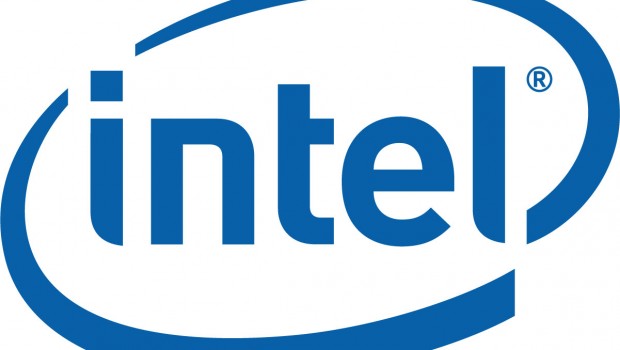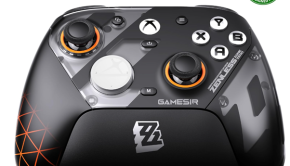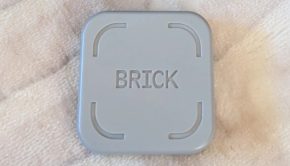New 7th Gen Intel Core Processor: Built for the Immersive Internet
The way we interact and connect with each other has evolved. It’s richer and more immersive, as video has become an increasingly important medium we use to enhance our conversations. The emergence of 4K Ultra High-Definition, 360-degree video, and virtual reality has dramatically widened and deepened our vantage points.
These trends in how we consume and create content, in how we communicate and interact, reflect what we at Intel call the immersive internet. And the best way to take advantage of the immersive internet is on a computer with the performance to deliver a lifelike experience. People need the power to view, the power to create and the power to play – something that the PC is uniquely designed to do.
To power these experiences, today I’m excited to unveil the new 7th Gen Intel® Core™processors. Built for the immersive internet, this new generation of processors leverages our long-standing performance leadership and adds unmatched new media capabilities.
Our 7th Gen Intel Core processors show advances across the board:
Faster and more responsive: Intel’s engineering and manufacturing teams have drawn even more out of our 14nm process technology with what we call 14nm+. 7th Gen Intel Core delivers up to 12 percent faster productivity performance1 and up to 19 percent faster web performance2 over our previous generation from just a year ago.
Access to premium 4K UHD content: With new computers powered by 7th Gen Intel Core, TV and movie fans will have access to premium 4K UHD content streaming from studios like Sony Pictures Home Entertainment and providers like FandangoNOW. This is just the beginning as we see 4K UHD content go mainstream over time. We’re excited about some additional content announcements in the next few months, so stay tuned.
Opens a world of user-generated 4K UHD content: People can now view the 4K UHD content being shared on sites like YouTube and watch for longer on 7th Gen Intel Core based systems. But they also have the power to create, edit and share their own 4K UHD and 360-degree clips up to 15 times faster3than on a 5-year-old PC thanks to the work we’ve done under the hood with our new media engine.
Gaming on the go: Gamers will see a threefold improvement in graphics4 compared to a 5-year-old PC, meaning you can play popular games like Overwatch™ anytime and anywhere on a thin, light laptop. And with Thunderbolt 3 support coming to more devices, gamers can use a single cord to plug in an external graphics dock and 4K UHD monitors for top-line gaming performance.
Powers the thinnest and lightest devices ever: Just compare what is available now to a 5-year-old PC, and it’s obvious how far we’ve come. Some of the new 7th Gen Intel Core PCs are thinner than a phone, with the full performance expected from a PC!
We are incredibly excited about the strong partnership with our OEM customers and expect more than 100 different 2 in 1s and laptops powered by 7th Gen Intel Core to be available starting in September through this holiday season. We will share more on the rest of the 7th Gen Intel Core family for desktops and enterprise PCs early next year.
To say we are excited about our new 7th Gen Intel Core family is an understatement. I don’t think there has ever been a better time to check out what a new Intel-powered PC can do.
Navin Shenoy is corporate vice president and general manager for the Client Computing Group at Intel Corporation.
1As Measured by SYSmark* 2014 (Intel® Core™ i7-7500U vs. Intel® Core™ i7-6500U)
2As Measured by WebXPRT* 2015 (Intel® Core™ i7-7500U compared to Intel® Core™ i7-6500U)
3Based on MAGIX* Fastcut Video Create Workload (Intel® Core™ i5-7200U vs. Intel® Core™ i5-2467M)
4Based on 3DMark* Cloud Gate Graphics Score (Intel® Core™ i5-7200U vs. Intel® Core™ i5-2467M)
Overwatch is a trademark of Blizzard Entertainment, Inc., in the U.S. and/or other countries
Software and workloads used in performance tests may have been optimized for performance only on Intel microprocessors.
Performance tests, such as SYSmark and MobileMark, are measured using specific computer systems, components, software, operations and functions. Any change to any of those factors may cause the results to vary. You should consult other information and performance tests to assist you in fully evaluating your contemplated purchases, including the performance of that product when combined with other products. For more complete information visit www.intel.com/benchmarks.
Intel is a sponsor and member of the BenchmarkXPRT Development Community, and was the major developer of the XPRT family of benchmarks. Principled Technologies is the publisher of the XPRT family of benchmarks. You should consult other information and performance tests to assist you in fully evaluating your contemplated purchases.
System Configurations:
7th Generation Measurements:
Intel® CRB, Intel® Core™ i5-7200U Processor, PL1=15W TDP, 2C4T, Turbo up to 3.1GHz, Memory: 2x4GB DDR4-2133, Storage: Intel SSD, Display Resolution:1920×1080. Intel HD, Graphics 620, OS: Windows* 10 TH2
Intel® CRB, Intel® Core™ i7-7500U Processor, PL1=15W TDP, 2C4T, Turbo up to 3.5GHz, Memory: 2x4GB DDR4-2133, Storage: Intel SSD, Display Resolution: 1920×1080, Intel HD Graphics 620, OS: Windows* 10 TH2
6th Generation Measurements:
Intel® CRB, Intel® Core™ i7-6500U Processor, PL1=15W TDP, 2C4T, Turbo up to 3.1, Memory: 2x4GB DDR4-2133, Storage: Intel SSD, Display Resolution: 1920×1080. Graphics Driver: 15.40.4254, OS: Windows* 10 TH2
Refresh Comparison Measurements:
Intel® Core™ i5-2467M Processor (1.6 GHz base, up to 2.3GHz 2C4T, 17W TDP) measured on Dell* XPS13-40002sLV 13” Ultrabook, RAM: 4GB DDR3, Storage: 128GB SSD, Display: 13.3” 1366×768 resolution, Battery: 46WHr, OS: Windows* 7
Workload Descriptions:
SYSmark* 2014 is a benchmark from the BAPCo* consortium that measures the performance of Windows* platforms. SYSmark tests three usage scenarios: Office Productivity, Media Creation and Data/Financial Analysis. SYSmark contains real applications from Independent Software Vendors such as Microsoft* and Adobe*. Reported metrics: SYSmark 2014 Rating and a rating for each scenario result (higher is better for all). Scaling efficiencies: CPU dominant, sensitive to frequency, core count and memory. QSV enabled.
WebXPRT* 2015 is a benchmark from Principled Technologies* that measures the performance of web applications using six usage scenarios: Photo Enhancements, Organize Album, Local Notes, Stock Option Pricing, Sales Graphs, and Explore DNA Sequencing. WebXPRT tests modern browser technologies such as HTML5 Canvas 2D, HTML5 Table, HTML5 Local Storage, as well as JavaScript*. Reported metrics: elapsed time in seconds (lower is better) for each scenario, plus an overall score (higher is better). Scaling efficiencies: CPU dominant (newer browsers are GPU accelerated), sensitive to frequency. WebXPRT is very sensitive to browser type and version. OS support: Any OS that supports an HTML5 browser.
3DMark* is a benchmark from Futuremark* that measures DX* 9 / OpenGL* ES 2.0, DX 10 and DX 11 gaming performance. There are three main tests: “Ice Storm” for DX 9 / OpenGL ES 2.0, “Cloud Gate” for DX 10, “Sky Diver” for DX11 and “Fire Strike” for DX 11 graphics. Reported metrics: Graphics Score (GPU), Physics Score (CPU), Combined Score (GPU & CPU) and an overall 3DMark Score (higher is better for all Scores). Scaling efficiencies: Graphics tests are GPU dominant, sensitive to graphics and CPU frequency, core count and memory. OS support: Desktop Windows*, Android*, iOS* and Windows RT.
MAGIX Fastcut Video Create Workload: Using MAGIX* Fastcut – The workload video is a 9min 21sec, 3840×2106, ~59.9Mbps, 30fps, H.264, 3.89GB, .mp4 file. The “A Cold Place” template is applied and is exported using the UHD setting. The output video is a 38s, 3840×2160, ~59Mbps, H.264, .mp4 file.







